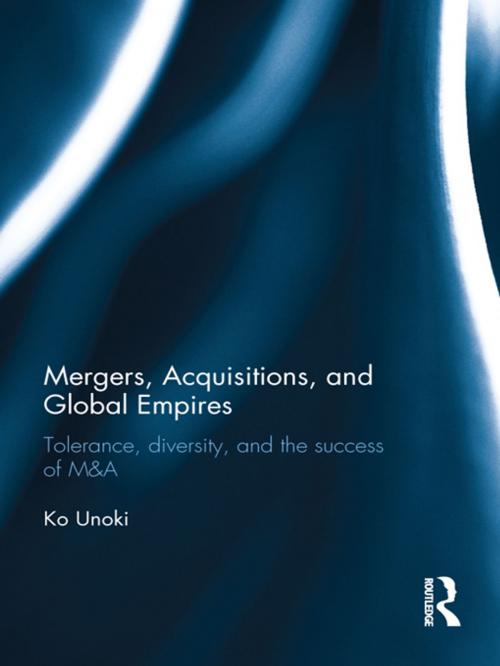Mergers, Acquisitions and Global Empires
Tolerance, Diversity and the Success of M&A
Business & Finance, Economics| Author: | Ko Unoki | ISBN: | 9781136215384 |
| Publisher: | Taylor and Francis | Publication: | October 12, 2012 |
| Imprint: | Routledge | Language: | English |
| Author: | Ko Unoki |
| ISBN: | 9781136215384 |
| Publisher: | Taylor and Francis |
| Publication: | October 12, 2012 |
| Imprint: | Routledge |
| Language: | English |
Companies that have acquired other enterprises through mergers and acquisitions (M&A) have in essence become entities that are akin to the global "empires" of history. In this book, the author weaves a unique narrative that looks at both empires of business created from M&A and global empires from world history in an attempt to answer the question: why do certain empires endure for long periods while others collapse in a short space of time.
Empires formed from M&A or conquest have a hierarchical relationship of control and domination by a single authority or centre that can be described as a "parent company" or a "mother country" over another group of people based in a periphery that can be described as a "subsidiary company" or "colony." Given their similarities in development and structure, the author argues from looking at examples of empires in Western and Asian history as well as major M&A cases that long enduring empires created from M&A and global empires have a common cultural trait; their practice of "tolerance" within their organizations/societies.
While there are books on the topics of M&A and empires, at present there is no single text that examines the impact of culture on both. This book is intended to fill such a void and provide hints and suggestions to those practitioners of M&A as well as students of business and history who want an accessible, non-technical narrative on what makes empires, whether they are of the nation or of M&A endure and prosper.
Companies that have acquired other enterprises through mergers and acquisitions (M&A) have in essence become entities that are akin to the global "empires" of history. In this book, the author weaves a unique narrative that looks at both empires of business created from M&A and global empires from world history in an attempt to answer the question: why do certain empires endure for long periods while others collapse in a short space of time.
Empires formed from M&A or conquest have a hierarchical relationship of control and domination by a single authority or centre that can be described as a "parent company" or a "mother country" over another group of people based in a periphery that can be described as a "subsidiary company" or "colony." Given their similarities in development and structure, the author argues from looking at examples of empires in Western and Asian history as well as major M&A cases that long enduring empires created from M&A and global empires have a common cultural trait; their practice of "tolerance" within their organizations/societies.
While there are books on the topics of M&A and empires, at present there is no single text that examines the impact of culture on both. This book is intended to fill such a void and provide hints and suggestions to those practitioners of M&A as well as students of business and history who want an accessible, non-technical narrative on what makes empires, whether they are of the nation or of M&A endure and prosper.















